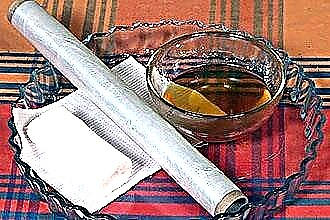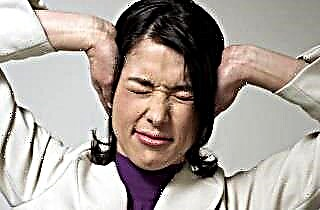Many believe that treating cough with tea is a grandmother's way, which in our time has long lost its relevance. And even if they drink hot medicinal drinks, they prefer to use such potent agents as Coldrex, Flukold and similar drugs. But their use is justified only in case of a strong increase in temperature or when the symptoms of the disease must be eliminated as quickly as possible. If the disease is just beginning or you have a common cold, then herbal tea for coughing will not only stop it, but also activate the body's defenses.
Why drink tea
 Indeed, our grandmothers and even grandmothers of grandmothers drank tea for cough with viburnum, raspberries, lingonberries and honey. And since this method of treatment has been proven for centuries, it probably makes some sense. Let's try to figure out how regular tea can help with colds:
Indeed, our grandmothers and even grandmothers of grandmothers drank tea for cough with viburnum, raspberries, lingonberries and honey. And since this method of treatment has been proven for centuries, it probably makes some sense. Let's try to figure out how regular tea can help with colds:
- warms up an irritated throat, making breathing easier;
- relieves inflammation, quickly removing pain;
- improves blood circulation, accelerating recovery.
But this is only a general superficial effect of tea. The main secret and healing properties lie in its composition. For example, regular green tea contains many antioxidants that enhance the immune system and accelerate cell regeneration. And if you add honey, which has antibacterial, anti-inflammatory and even antipyretic properties, and lemon, whose essential oil destroys pathogens, it will become a real healing drink.
In principle, any tea can help relieve a cough with a cold. But coughs are different. It depends on the disease itself and the characteristics of its course. So, an allergic cough is usually sharp and dry, and with bronchitis it can be either dry or wet, gurgling.
 And for each type of cough, different herbs will be most effective. In addition, recipes for herbal teas for adults and children sometimes differ not only in concentration, but also in composition.
And for each type of cough, different herbs will be most effective. In addition, recipes for herbal teas for adults and children sometimes differ not only in concentration, but also in composition.
Tea with honey is several times more useful than ordinary herbal decoction. But honey must be of very high quality and natural, without added sugar. You can check this by dropping a drop of iodine into a small amount of honey. If the color of honey turns blue or purple, you cannot buy such a product, especially for a child.
There should be no air bubbles in the jar with honey, and there should be no whitish foam on its surface. Best of all, linden and buckwheat honey, as well as herbs, help with colds.
We prepare tea correctly
You also need to be able to make medicinal tea correctly. If you have chosen green tea as the main component, then remember that it is not brewed with boiling water - this almost completely destroys its healing properties. Green tea is poured with water with a temperature of no more than 80 0C and insist no longer than 15 minutes.
Herbal tea, on the contrary, should be well infused so that the plant gives off the maximum of its nutrients. To do this, it is brewed with steep boiling water, well covered with a lid and the kettle is wrapped in a towel (you can brew it in a thermos). The drink is ready to drink in 15-20 minutes. You can get rid of the blades of grass by filtering it through a special metal mesh or a piece of gauze.
 Lemon with honey also has its own characteristics, which are often added to medicinal tea. When heated over 60 0Harmful chemical compounds are formed in honey. Such a drink will definitely not bring benefits.
Lemon with honey also has its own characteristics, which are often added to medicinal tea. When heated over 60 0Harmful chemical compounds are formed in honey. Such a drink will definitely not bring benefits.
Therefore, you need to add honey to the cup just before you are going to drink tea that has already cooled down to a comfortable temperature. Or put it in a small container and drink a bit of a drink, eating honey from a spoon and drinking tea.
Lemon is best used together with the peel - it is it that contains useful essential oils that evaporate when heated, providing an additional inhalation effect. A large amount of lemon is not always useful - it stimulates the production of gastric juice and increases its acidity. Therefore, it is better for people with problems of the digestive tract to use it in moderation.
A very healthy tea with viburnum can be bitter if picked too early. Their ripeness can be determined by the uniform bright red color and light transparency of the berries. If you are preparing tea with viburnum for a child, it is better to squeeze out the juice so that there are no seeds in the drink.
The best recipes
 Below are the best folk recipes for herbal cough teas that are great for colds and at the initial stage of infectious or viral diseases:
Below are the best folk recipes for herbal cough teas that are great for colds and at the initial stage of infectious or viral diseases:
- Chamomile with honey. The most popular and effective remedy for colds. It has strong anti-inflammatory properties and is even capable of having an antipyretic effect due to diaphoretic action. Therefore, it is better to drink it in bed, having prepared a change of clothes in advance. The only downside is that chamomile is an allergenic plant for many. Therefore, for the first time, you can try chamomile tea in a very small amount - no more than 1 tbsp. spoons for an adult and a teaspoon for a child. If no allergic reaction is noticed within two hours, you can safely begin treatment.
- Ginger tea. It is also prepared with or without honey. Ginger is excellent at reducing inflammation, activating the immune system, improving blood circulation and has a warming effect. Therefore, it is not recommended to drink it at high temperatures. Ginger goes well with green tea and sage broth. You can add lemon. Peel the ginger before cooking and cut into small pieces. For a large cup, 1 cm of root is enough. Also, ginger drink is contraindicated for people with high blood pressure and heart problems.
 A drink made from licorice root with honey. It is able to significantly alleviate the condition even with advanced bronchitis. Has a pronounced expectorant effect, also anti-inflammatory, antibacterial, immunomodulatory properties. Helps to quickly defeat gurgling cough and remove accumulated phlegm. To prepare a drink, you need to take 2-3 cm of finely chopped licorice root, add a dry plantain leaf and a few rose hips. Such a drink, also with honey, is a real vitamin bomb.
A drink made from licorice root with honey. It is able to significantly alleviate the condition even with advanced bronchitis. Has a pronounced expectorant effect, also anti-inflammatory, antibacterial, immunomodulatory properties. Helps to quickly defeat gurgling cough and remove accumulated phlegm. To prepare a drink, you need to take 2-3 cm of finely chopped licorice root, add a dry plantain leaf and a few rose hips. Such a drink, also with honey, is a real vitamin bomb.- Raspberry tea can be made from almost any part of raspberries: leaves, twigs, berries. It is traditionally believed that this is a children's cough tea, but it helps adults just as well. You can add leaves or dried berries of wild strawberries, blueberries, currants to raspberry tea. It has a diaphoretic and diuretic effect, so you need to drink it in large quantities to avoid dehydration. It perfectly helps with any type of cough, at the same time cleansing the body of toxins that are formed when pathogenic bacteria die.
- Tea with viburnum. Viburnum berries are good for sore throat, which occurs with a sharp dry cough. And the strongest anti-inflammatory properties of viburnum can quickly relieve inflammation and significantly accelerate recovery. Be sure to add honey or a little sugar to tea with viburnum.
You can also use ready-made mixtures of dry medicinal plants, which can be bought at any pharmacy or ready-made tea bags, for making healing tea. But here you must definitely pay attention to the composition and contraindications.
 In properly formulated mixtures, herbs interact to enhance each other's properties, but some ingredients may simply not be suitable for you.
In properly formulated mixtures, herbs interact to enhance each other's properties, but some ingredients may simply not be suitable for you.
If you are taking medications, you should definitely check with your doctor before using herbal medicinal teas on a regular basis.Some plants are capable of weakening the action of the medicine.
Drinking such teas for a long time without a break is also impossible - a maximum of a month, and then be sure to pause. Herbal tea is a very useful and effective drink for coughs, but only if the properties of the plants are used correctly.

 A drink made from licorice root with honey. It is able to significantly alleviate the condition even with advanced bronchitis. Has a pronounced expectorant effect, also anti-inflammatory, antibacterial, immunomodulatory properties. Helps to quickly defeat gurgling cough and remove accumulated phlegm. To prepare a drink, you need to take 2-3 cm of finely chopped licorice root, add a dry plantain leaf and a few rose hips. Such a drink, also with honey, is a real vitamin bomb.
A drink made from licorice root with honey. It is able to significantly alleviate the condition even with advanced bronchitis. Has a pronounced expectorant effect, also anti-inflammatory, antibacterial, immunomodulatory properties. Helps to quickly defeat gurgling cough and remove accumulated phlegm. To prepare a drink, you need to take 2-3 cm of finely chopped licorice root, add a dry plantain leaf and a few rose hips. Such a drink, also with honey, is a real vitamin bomb.

